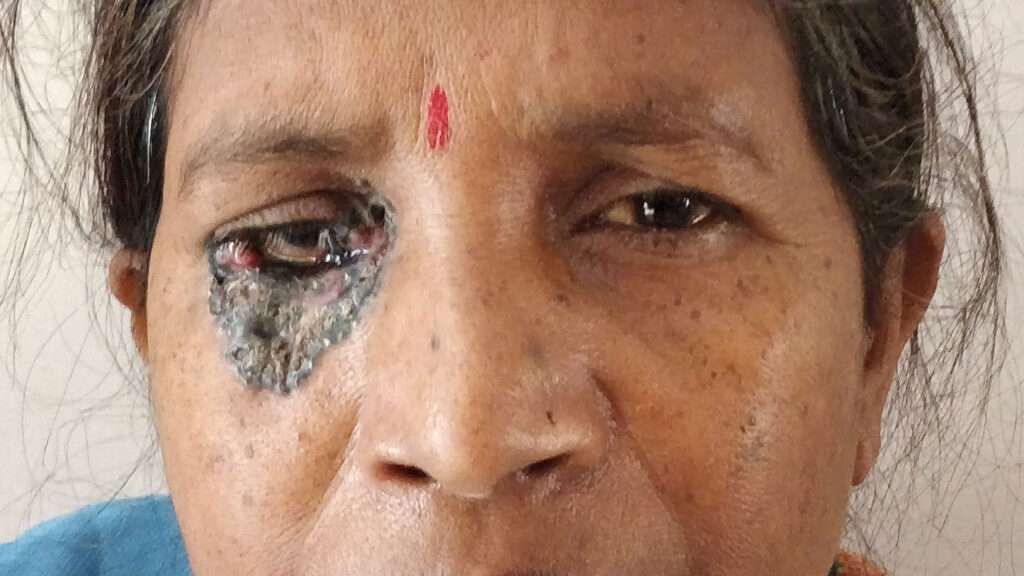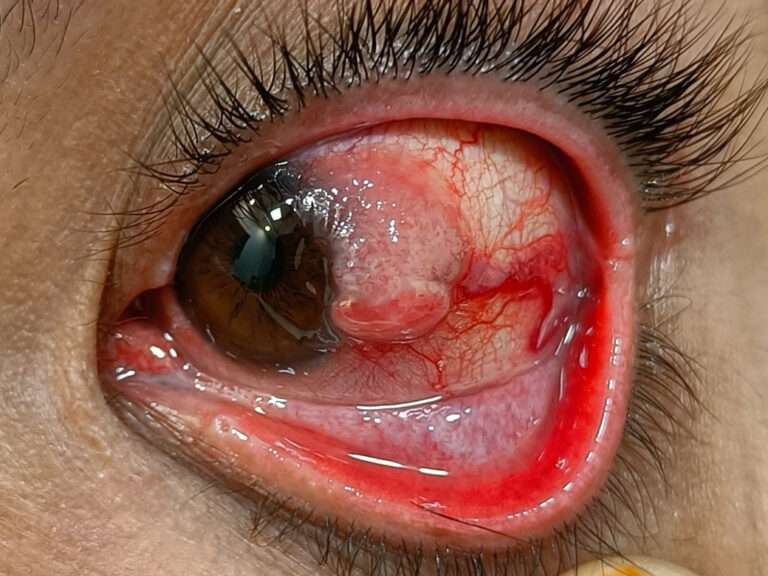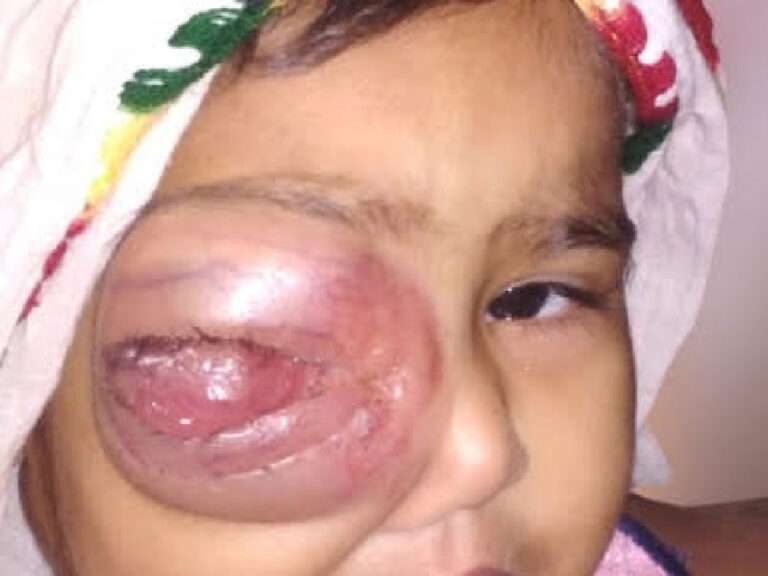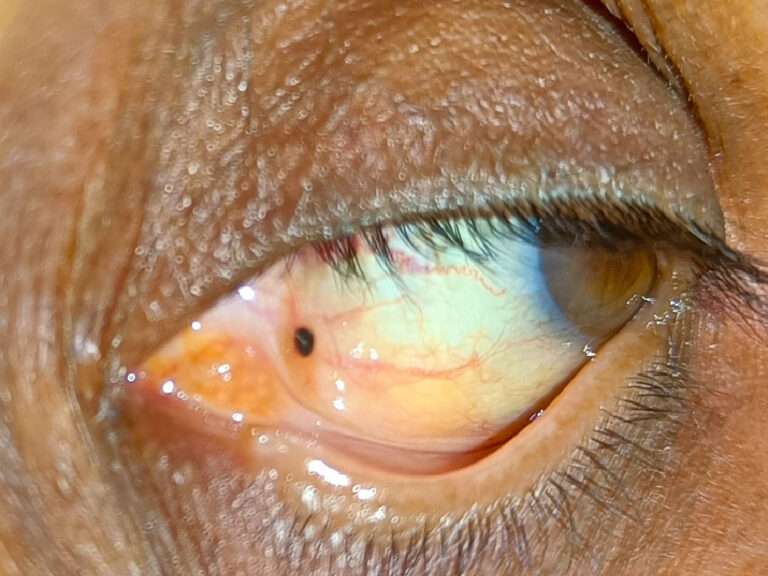
Eye Cancer
Q. What is Eye Cancer?
A. Eye Cancer includes the cancer of the eye and/or its surrounding tissues, namely, eyelids, eye muscles, eye vision nerve (optic nerve), lacrimal gland (tear forming gland), tear drainage system, and orbit.
Q. Why have I not heard about eye cancer or why there is a lack of awareness regarding eye awareness?
A. Meanwhile, the incidence rate (rate of occurrence) is higher in lung cancers, brain cancers, breast cancers, or cervical cancers making people aware more of them. There lies a substantial unawareness when it comes to eye cancer, Infact, India has the highest incidence of children’s eye cancer.
Q. What age groups are affected by eye cancer?
A. Eye cancer, similar to other cancers can affect any age. But it is most likely to affect the extremes of age groups i.e., younger age group <10 years or older age group >60 years.
Q. What are the symptoms of eye cancer?
- Any small growth increasing in size rapidly
- White reflex in the eye especially in kids
- Blurring to loss of vision
- Loss of peripheral vision or flying objects in the visual field (floaters)
- Mismatch of the eye size, one eye is appearing either bigger or smaller than the other eye
- Pain in the eye (usually in advanced cases)
- Redness in eye
- Double vision
- Any Dark brown or pink growth in the eye which is increasing
- Change in iris color
Having these symptoms doesn’t necessarily mean that you are suffering from cancer. But in the case of these, a thorough eye examination is a must.
Q. When should I consult with the doctor?
A. In cases of eye cancer, earlier diagnosis at an early stage can salvage not only the life and eyeball but also the vision.
Q. What are the types of eye cancers?
A. Eye cancer can originate from any part of the eye or surrounding tissues and may not restrict to that specific area and extend beyond to involve not just the eyes but also the brain, lymph nodes, paranasal system, liver, lungs, skin, and bones in rare advance cases.
Extraocular
- Eyelids Tumor
- Basal Cell Carcinoma
- Sebaceous Gland Carcinoma
- Squammous Cell Carcinoma
- Lacrimal Gland Tumor
- Optic Nerve Tumor
- Conjunctival Tumor
- Squammous Cell Carcinoma
- Melanoma
- Miscellaneous Tumors
Intraocular
- Retinoblastoma
- Uveal Melanoma/ Choroidal Melanoma Lymphoma
- Miscellaneous Tumors
Q. What are my treatment options?
A. At View Care, we follow the latest protocol-based management for each eye cancer based on advanced technology and recently published literature including both international and Indian studies.
Eye cancer is not just treated solely by the ocular oncologist. At View Care, we follow a multi-disciplinary approach involving an Ocular Oncologist, Radiologist, Pathologist, Pediatric Oncologist, Anesthesiologist, Medical or Radio oncologist, and neurosurgeon to provide comprehensive management to the patient.
Goals of Eye Cancer Management
- Life Salvage – to improve the survival
- Globe Salvage – able to safeguard the eyeball
- Vision Salvage – able to save the vision
Treatment Options:
- Surgery– This can either be performed to either confirm the diagnosis or completely cure cancer. In diagnostic surgery, a piece of cancer is surgically removed for histopathological evaluation whereas, in curative surgery, the entire cancer is removed, or it is debulked depending on its extent.
- Chemotherapy –Many eye cancers are treated with mono or combined chemotherapy via intravenous, intravitreal, intraarterial, sub-conjunctival, or intrathecal routes. It is also used as an adjunct with radiotherapy and/or surgery
- Radiotherapy – It can be either local surface plaque brachytherapy or external beam based. Herein, radiotherapy provides a non-surgical approach.
Q. What will be my follow-up schedule?
A. Eye cancer like other cancers is notorious to recur, even after completely removing or curing cancer. A regular follow-up is a must to identify early recurrence if occurs.
Your Postoperative follow-up will schedule as
- One Day
- 1 week
- 6 weeks
- 3 monthly x 4 times
- 6 monthly x 4 times
- Then annually







